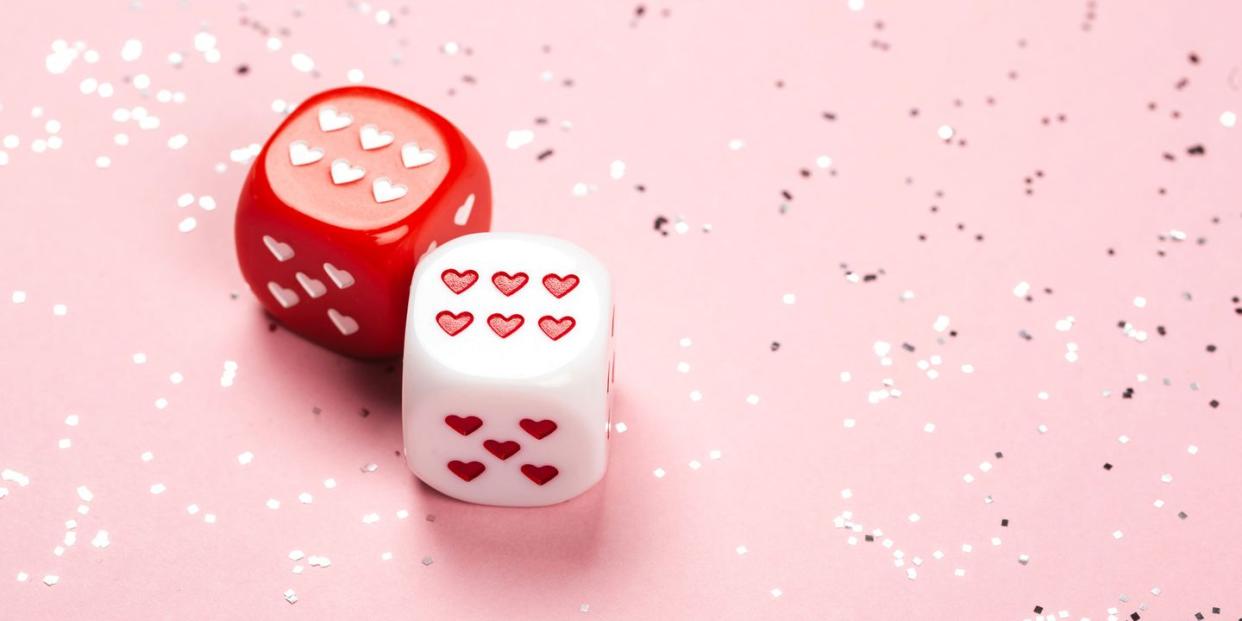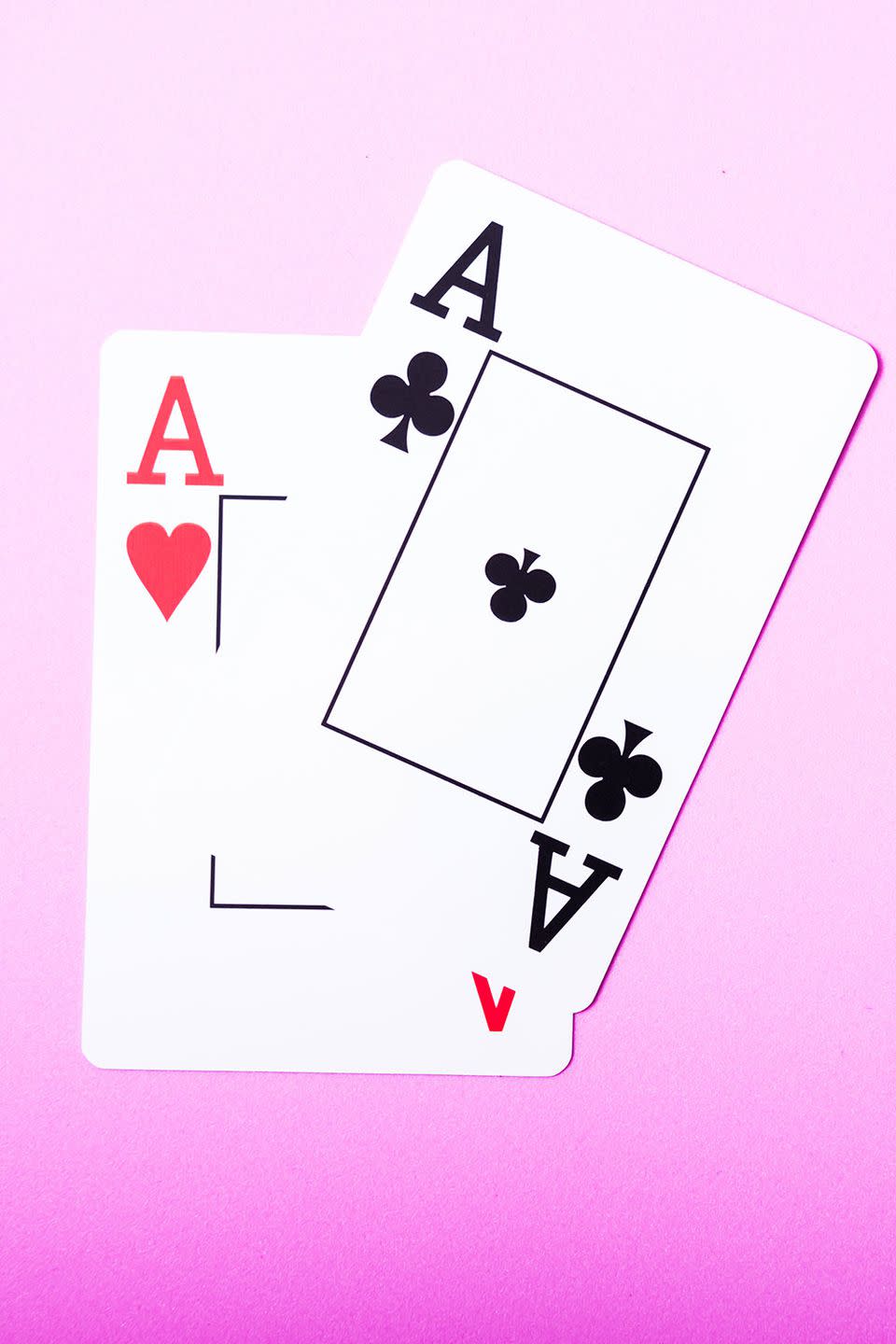This is what it really means to be asexual

An asexual person - or an 'Ace' as we're sometimes known - is someone who just doesn't experience sexual attraction. It's really not that difficult a concept to grasp. Yet there are still so many misconceptions and myths surrounding asexuality. Here's what it really means (and what it definitely doesn't mean) to be asexual.
Asexuality is not some kind of "trendy new label" for young people
As the asexual community is mainly online (The Asexual Visibility & Education Network - AVEN - was founded in 2001), it would make sense that it's mostly made up of younger people. But a 2008 AVEN survey found that respondents' date of birth ranged from 1942 to 1995. There's also some evidence that asexuality was being discussed online as early as the mid 1990s, so it's not entirely new.
Asexuality *does* exist
Everyone has to be sexually attracted to someone, right? If someone is adamant that it's impossible for a person to not experience sexual attraction, it's probably going to be difficult to convince them otherwise. I mean, as an asexual person, I honestly thought everyone was faking sexual attraction until I was 18, so I get it. It's difficult to empathise with something that's totally outside your experience. But trust me, asexuality does exist.

Asexuality is not the same as celibacy
People who are celibate may still experience sexual attraction, but they just choose not to act on it. Being asexual means you don't experience sexual attraction. It's the difference between abstaining from chocolate cake, and having no desire to eat chocolate cake in the first place.
Asexual people can be interested in romantic relationships
This is true for some asexuals, but most are interested in close and intimate relationships (which may even include getting married and having children). If you think about it, romantic relationships aren't all about sex; there are a lot of other things that set them apart from friendship.
Most asexual people also have preferences about the gender of their partners. This is why asexual people tend to talk about "romantic orientation", so someone might describe themselves as heteroromantic or homoromantic, for example. The term for asexual people who aren't interested in romantic relationships at all is 'aromantic'.
Some asexual people do sex
There are many asexuals who do have sex, even if they're not sexually attracted to their partner. The reasons why can vary. Sometimes it's because they're in a relationship with someone who isn't asexual, and it's a form of compromise. Some asexuals don't actually mind having sex.
Asexual people do get aroused/masturbate/have fantasies
Some asexual people feel that they don't have a sex drive at all, but many do. It's just that it's not directed towards any particular person or gender. Some asexuals describe arousal as a biological urge, just like hunger, which they're happy to deal with on their own. And those who masturbate might describe it as something relaxing, rather than something overtly sexual.
Asexual people don't just only date other asexual people
That would make the dating pool quite small, and as explained above, some asexuals don't mind having sex as a compromise. All relationships involve compromise, and while a relationship between an asexual person and someone who isn't asexual might present some unique challenges, it's totally possible for it to work out.
Asexuality is not caused by trauma/mental illness/medication/ being on the autistic spectrum
As with any other community, the asexual community is diverse, and undoubtedly does include people who have experienced trauma, or who are on the autistic spectrum. But there is no evidence of a link. And while it's also true that some conditions such as depression, and some medications, can affect a person's sexuality, asexual people tend to describe their sexual orientation as something which has been permanent and constant for as long as they can remember - even if they didn't always have a way to describe it.

Asexual people are not all unattractive
This myth probably comes from some people's inability to accept there are people who aren't bothered about having sex. Instead, they imagine that those people can't find sexual partners and are using 'asexuality' as an excuse for why they're single or haven't lost their virginity. It's difficult to dignify this one with an answer but you only have to watch asexuality videos on YouTube to realise that this isn't true.
Asexual people aren't all shy and introverted
If you think about it, there are some spaces in society (such as bars and nightclubs) which can be quite 'sexualised' in terms of their atmosphere and how people behave there. It's understandable (though not universally true) that an asexual person might not want to be in that kind of environment. Aside from that, there's probably a mix of introverts and extroverts in the asexual community, as with any group of people.
You can know you're asexual even if you haven't had sex
Most people tend to know their sexual orientation before they actually have sex. It's no different for asexual people. Having said that, a lot of asexual people have actually had sex.
Asexual men exist
The 2008 AVEN survey found that around 70% of respondents were female. However, that doesn't mean that there are more asexual women out there than asexual men. There are a lot of gender stereotypes and expectations that could make it more difficult for men to accept themselves (let alone come out) as asexual, since stereotypes about masculinity often include being hypersexual.
No, it's not that asexual people just "haven't met the right person yet"
This is like telling a man who identifies as straight that he just hasn't met the right man yet. Ridiculous.
You Might Also Like

